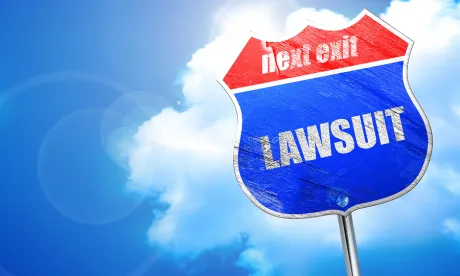How Do I Know If I Have a Hernia Mesh Claim?
STEP 1: Obtain Medical Records
The first step in figuring out whether you have a potential hernia mesh claim is to confirm which type of hernia mesh you had implanted. There is a simple way to do that. Whenever doctors use a medical implant or device, like hernia mesh, it comes in its own shiny new box (as you can imagine, a lot of marketing goes into the packaging of these expensive products). The box has stickers on it that specifically identify everything about the mesh (manufacturer, model, lot number, etc.). The surgeon takes the sticker off of the box and attaches it to the Operative Report. Consisting of only a few pages, the Operative Report is a basic summary of your hernia mesh implant operation. The stickers are usually attached to the last page of the Operative Report. You can go to your medical provider and ask for your Operative Report (this should only take you a couple of days), or you can retain an attorney to formally request your operative report (this will take a few weeks).
Helpful hint: medical providers are only responsible for keeping records for a certain amount of time. If your operation happened a relatively long time ago (longer than seven years), it will be much more difficult to get the records.
STEP 2: Identify the Mesh
Now that you have a copy of your Operative Report with the identifying stickers, you need to compare your hernia mesh to a list of meshes that are alleged to be defective and are part of the pending nationwide litigations.
Helpful hint: we have a list posted here – Types of hernia mesh involved in litigation.
There are many different kinds of hernia mesh. Some hernia mesh is made out of biological materials from sources like pigs or cadavers – those meshes are not part of the pending nationwide litigations. Most hernia mesh is made out of synthetic material like polypropylene (similar to fishing string). Strands of the synthetic mesh are basically woven into supportive netting that can then be shaped into different forms depending on the type of hernia and placement in the body. Based on various factors, like the type of polymer used, the weight and the pore size of the mesh, etc., some types of synthetic hernia mesh are, relatively speaking, not that bad and not part of the pending nationwide litigations (they are not on our list of types of hernia mesh involved in litigation). Other types of synthetic hernia mesh are a disaster and have been pulled from the market. These meshes seem to be the product of new, poorly thought out designs in an attempt to boost sales. For example, one type of popular hernia mesh no longer on the market was coated with fish oil (yes, we said fish oil and no, we do not know how someone could have thought that was a good idea).
STEP 3: Is Revision Necessary?
Now that you have identified your hernia mesh as one of the meshes that are alleged to be defective and are part of the pending nationwide litigations, you have to be able to show you suffered damages that require a revision of the mesh. Defective hernia mesh can migrate, puncture, bunch or roll up. It can also cause infection, excess scar tissue (adhesions), or generally get mixed up in your internal organs and tissues, causing any number of medical issues.
Unfortunately, recurrence of a hernia or experiencing a hernia in another part of the body is not uncommon and does not always mean that your injuries are attributable to defective hernia mesh. In order to qualify for the pending nationwide litigations, you will have to show that you require a revision of your hernia mesh. In this case, “revision” basically means that a doctor has found it necessary to go in and try to fix or remove part or all of your defective mesh.
STEP 4: Contact an Attorney
Now that you have determined that you have defective hernia mesh that required (or will require) revision, you will want to get some legal advice. Two things to keep in mind: 1) make sure to talk to a law firm that specializes in hernia mesh litigation; and 2) do not wait – there are different deadlines and statutes of limitations that apply to your claim. Do your homework and research the firm you will be working with – there is a good chance it will not be the same lawyer that handled your last speeding ticket, or one of the 800 numbers that flash across your television screen late at night. Put this on the top of your pile of things to do. Only bad things can happen if you wait too long to pursue a claim.




 />i
/>i

